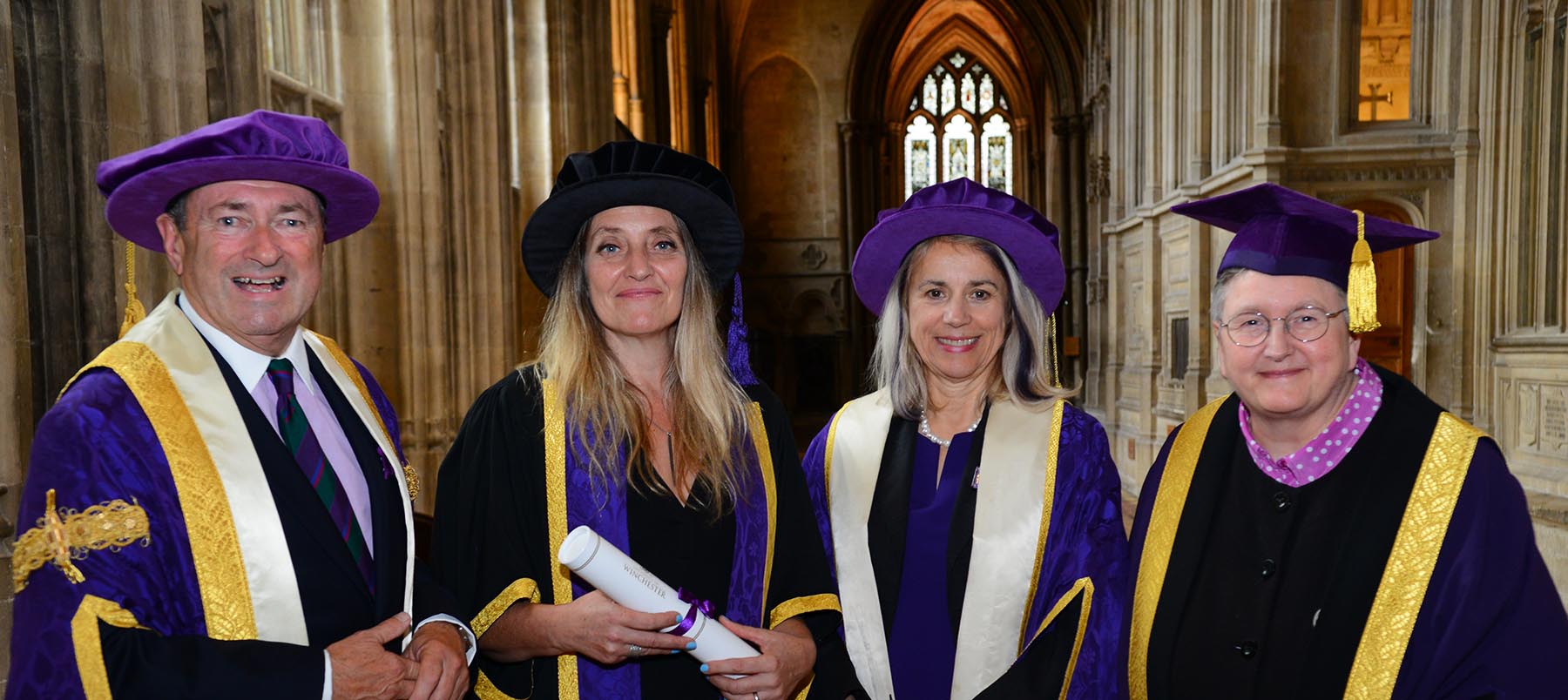
During Graduation this year, we were delighted to present an Honorary Fellowship to Louise Shorter, CEO of criminal justice charity Inside Justice, for her services to rights campaigning. Through the charity, and her work as a former BBC journalist, Louise has spent much of her career investigating the convictions of prisoners serving long jail terms for crimes they say they did not commit. We spoke to her about her work, Making a Murderer and the importance of public engagement in wrongful conviction cases.
Previously, you worked on the BBC’s Rough Justice programme helping overturn wrongful convictions. What role do you feel journalism and the media should play in investigating miscarriages of justice?
I think journalism is uniquely placed to make a difference in miscarriages of justice cases because it isn’t confined to a certain role in the same way that other professions are. In the criminal justice world, professionals like the lawyer and the expert have a particular role; these are vital and important roles but they are limited. On the other hand, the investigative journalist can come along and do something that spans a variety of areas. If you think that something is wrong, you can start knocking on doors and pound the pavement until you get to the bottom of it. Ultimately, you can keep going until you get to the truth.
Setting up Inside Justice was actually suggested to me. I’d left the BBC and moved out into the countryside and I was happy to be doing not very much for a while. Then, I was asked to be on the board of directors for a prisoner’s newspaper called Inside Time, which I agreed to do.
One day, the editor asked me a couple of questions: What happens today if you are wrongly convicted and where do you go to? It was a difficult question to answer. At that time, many of the television programmes that I had been involved in – which had once played that role – had ended. We realised that there was nowhere left for prisoners to go to. So, the obvious thing to do was to set up the charity and provide that support ourselves.
We are always working on interesting cases. At Inside Justice, we get about five new letters every week from prisoners and family members asking for support. We have a team of people who review them and then we talk collectively about the different cases and decide which ones to investigate. We tend to concentrate our efforts on the most serious crimes, meaning we usually deal with murder cases and we spend a lot of time looking at forensic results.
The public is hugely important when it comes to wrongful convictions. It’s only when you get the swell of public opinion behind a case that things start to happen. It’s very difficult for the criminal justice system to put a wrongful conviction right because the system thinks that it has got it right; getting it wrong causes all sorts of issues and problems. It’s only when you get the public behind a case that it forces the criminal justice system to start thinking that maybe something has gone wrong. Their interest and encouragement in the case can be the difference between whether a broadcaster makes a programme or not, whether a newspaper runs an article or not. That kind of publicity is what makes all those within the criminal justice system sit up and start to take notice.
Absolutely! Without a doubt, they make a huge difference. The last programme I made while I was at the BBC for Rough Justice got the second highest audience figure for the entire year for its timeslot. Even so, the BBC thought that the programmes had gone out of fashion and nobody watched them anymore. Consequently, they stopped making them for a period of about ten years. So, when the likes of Serial and Making a Murderer came along, it was fantastic because it made all of those terrestrial broadcasters sit up and realise that, actually, they should be doing this work themselves. Thank goodness for those sorts of programmes because they bring attention to people who are likely to be stuck in a cell for 23 hours a day who can’t get to a telephone and call for help, let alone manage to reach an expert.
I encourage everybody – whether they are graduating or are established in their career – to consider giving up their time to help investigate a wrongful conviction case because the person who is in prison and trying to get help can’t do it themselves. So, if you are an expert, graduate or member of the public and you think you can help, or you are a news outlet considering running a story about a wrongful conviction case, get in touch with Inside Justice, we really need your help.
The University of Winchester Crime and Justice Research Centre is pleased to support the work of Inside Justice. Students from our Journalism and Criminology courses have worked in collaboration with the charity on several investigations, under the supervision of lecturers. Find out more about Inside Justice by visiting the charity’s website here.
Back to media centre